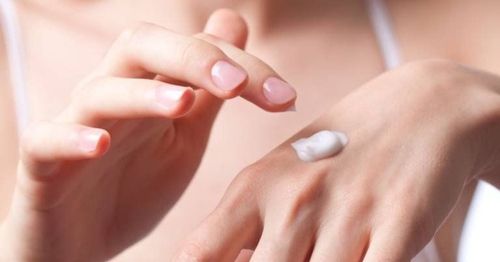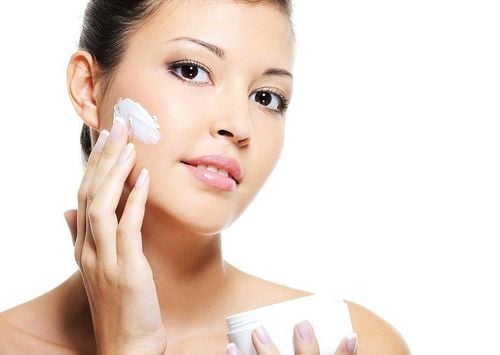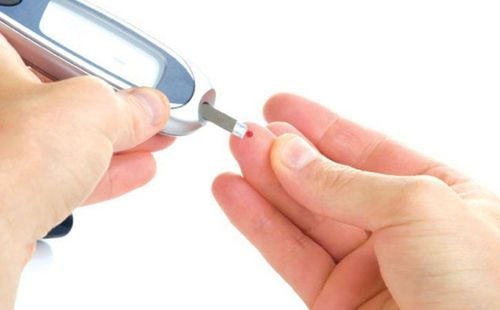This is an automatically translated article.
Adding moisture is an essential skin care step that almost everyone knows, especially women. However, choosing a skin moisturizer is not easy, because there are many types of moisturizers for each skin type such as: Facial moisturizer, moisturizer for dry skin, moisturizer for oily skin ,....
1. Choosing a skin moisturizer or lotion, or ointment?
Choosing a moisturizer is essential whether you have dry or oily skin or a combination of both. With a skin type there will be a choice with suitable levels from lotion to moisturizer and more to ointment.
If you have itchy or dry skin, you should use an ointment to better keep the skin moist. While the skin moisturizer form helps to hydrate, suitable for normal skin. While lotion is the lightest, this is a basic skin care product made up of oil and water (water is the main ingredient in this product) suitable for oily skin types.
The choice of skin moisturizer not only differs from person to person, but also varies between skin areas on the body and depending on the time and place of use. For example:
Choose a lighter moisturizer for the day and a thicker one for the night. Use a thicker cream for other body areas and a light moisturizer for your face. In the summer, the dry season needs to use a thicker moisturizer, and the wet season just use a lighter moisturizer.
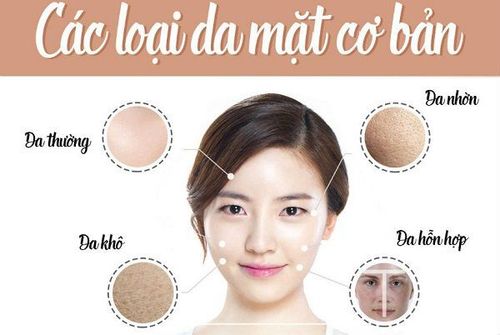
Việc lựa chọn sản phẩm dưỡng ẩm phải phụ thuộc vào tính chất làn da của bạn
2. How to choose a skin moisturizer?
Choose a moisturizer when exposed to the sun: Regardless of your skin type, when you are out in the sun, use a moisturizer with a sunscreen with an SPF of at least 30. If using for the face area, you should choose products that do not contain oils and fragrances. Skin moisturizer with antioxidants: A moisturizer combined with antioxidants like green tea, chamomile, pomegranate, or licorice root extract can help keep any skin type looking healthy. and smoother. Antioxidants help neutralize free radicals - molecules that break down skin cells. Skin moisturizer for oily or acne-prone skin: If your skin is oily or acne-prone, you'll need to choose a face moisturizer that's non-comedogenic and won't clog pores. . Moisturizer for dry skin: For dry skin that needs a stronger moisturizer, you should choose a product with ingredients like hyaluronic acid and dimethicone, which help the skin retain water longer. Other ingredients like glycerin, propylene glycol, protein and urea also help attract water to your skin. Moisturizer for sensitive skin: If you have sensitive skin, you should choose a moisturizer that is hypoallergenic and fragrance-free. It's best to choose products that contain less than 10 ingredients. Because the more ingredients there are, the more likely it is to interact with sensitive skin. Moisturizer for itchy skin: If your skin is itchy, you are using a moisturizer that is hypoallergenic but is not helping to relieve itchiness, try using a 1% hydrocortisone steroid lotion in about a week then stopped. If this still doesn't get rid of your itchy skin, you need to see a dermatologist, as you most likely have a more serious skin problem.

Khi bị ngứa da mặt bạn nên đến gặp bác sĩ da liễu để có phương án điều trị hiệu quả nhất
Skin moisturizer for eczema: Opt for an oil-based moisturizing ointment or simply an ointment to help soothe chapped skin and keep skin supple.
3. Things to avoid when choosing a skin moisturizer
It is not always best to have more ingredients in a skin moisturizer. To get the most out of your skin, you need to avoid some extras in products, which include:
Colorants and fragrances: Whether you want to moisturize dry skin or sensitive or otherwise, most experts recommend avoiding unnecessary and potentially irritating ingredients like colorants and fragrances. Antibacterial ingredients may also be unnecessary. Body-friendly ingredients: What's best for your body may not always work for your face. When choosing a facial moisturizer, experts recommend avoiding ingredients like lanolin, mineral oil, waxes, or nut butters. These substances can clog pores and cause acne on the face. Too much acid: Skin moisturizers with alpha-hydroxy acids, retinoic acid, and salicylic acid should be avoided if you have sensitive or dry skin. These ingredients can penetrate too deeply into the skin causing problems for delicate skin. Overuse of steroid ingredients: You need to limit the use of steroid creams or ointments. Use this product only for itchy skin and also for 1-2 weeks unless advised by a dermatologist. Overusing these creams can make your skin thinner and other skin problems.
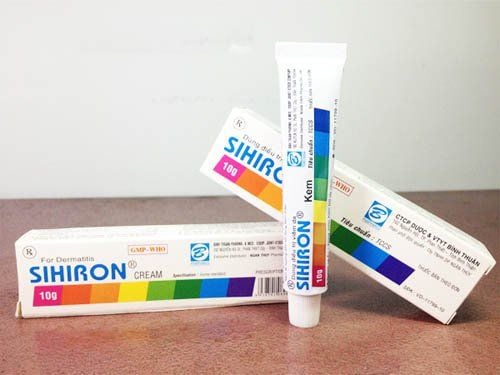
Lạm dụng các loại kem bôi có thành phần steroid khiến da bạn bị mỏng đi và dễ bị tổn thương
Urea or lactic acid (for eczema or chapped skin): Avoid using moisturizers containing these ingredients when the skin is dry. Because of urea, lactic acid can aggravate existing skin irritations.
4. 3 tips to get the most out of your skin moisturizer
Use more than one moisturizer (if necessary): Not everyone needs a closet of moisturizers. However, a thin moisturizer for the face and a thicker cream for other areas of the body are more suitable for a holistic skin care regimen. Use moisturizer while skin is still damp: Apply moisturizer right after showering a few minutes, then pat skin dry. Use a dual-action skin moisturizer: use a moisturizer with a sun protection factor (SPF) of 15 or higher. Experts also recommend vitamin A or alpha-hydroxy acids for an anti-aging boost. Vinmec International General Hospital with a system of modern facilities, medical equipment and a team of experts and doctors with many years of experience in medical examination and treatment, patients can rest assured to visit. and hospital treatment.
To register for examination and treatment at Vinmec International General Hospital, you can contact Vinmec Health System nationwide, or register online HERE.
Reference sources: webmd.com, kiehls.com
LEARN MORE
How to treat acne Summer facial skin care guide PRP skin rejuvenation after care guide






